AIPAC, the leading Israeli lobby group, and its role in subversion of US democracy
By David Miller
The American Israel Public Affairs Committee (AIPAC) is the most famous and equally notorious Israeli lobby group in the world. But how important is it really?
Some argue that its influence has been exaggerated and it can at best influence American policies at the margins, while others say it wields considerable clout in US power corridors.
Many of these arguments come from the political left like the one published in Mother Jones, the US leftist magazine, or the one from the former stalwart of the Palestinian cause, Christopher Hitchens, or even the one by Novara Media, a British “leftist” website.
In it, David Wearing presents his argument in these words:
AIPAC may best be seen as performing a disciplinary function within US politics. One can certainly argue that US support for Israel is made somewhat firmer given AIPAC’s role, and these marginal factors matter. But they are still marginal.
Certainly, the Zionist movement is keen to downplay its influence. A report in the Tablet: “How Influential Is AIPAC? Less Than Beer Sellers, Public Accountants, and Toyota” states:
The way AIPAC is talked about, you’d think they’d be a lobbying juggernaut, surely one of the largest in the nation’s capital. Wrong…:
Between 1998 and 2018, AIPAC didn’t make a dent in the Center for Responsive Politics list of the top-spending lobbying groups. In 2018, total pro-Israel lobbying spending was around $5 million, of which AIPAC accounted for $3.5 million.
In contrast, Native American casinos spent around $22 million that year. By Tablet’s count, AIPAC was the 147th highest-ranked entity in terms of lobbying spending in 2018.
This is an attempt to pretend that the influence of the Zionist movement is much less than suggested by observers.
However, against that, we can present these facts:
- Taking the figure disclosed to the lobbying regulator as if that was all AIPAC spends on lobbying is profoundly mistaken. Though it disclosed only $2.7 million lobby expenditure in 2022, its actual total expenditure was £79.1 million.
- In addition, AIPAC controls another nonprofit, the American Israel Education Foundation. It discloses nothing to the regulator, yet had a 2022 expenditure of a further $44.6 million.
- When we add campaign contributions the figures rise significantly. Donations by AIPAC’s Political Action Committee (PAC for short) and its new Super PAC, the United Democracy Project, in the most recent period (2024) total $17.4 million and $31.5 million respectively. It’s worth noting that none of this was donated by AIPAC itself. These are additional donations it has raised from others. The United Democracy Project is the third largest Superpac in the US in terms of 2024 expenditure, according to Open Secrets, the US lobby watchdog. This easily outstrips all corporate-related Superpacs.
- Looking more widely at the Israel lobby in general declared lobbying expenditure by the lobby in 2018 was $7 million not “around $5 million” as stated by the Tablet. The figure for 2022 was $5.4 million, with the following groups making significant declarations: Anti-Defamation League ($340,000), Christians United for Israel ($240,000), Foundation for Defense of Democracies ($180,000), J Street ($640,000), Jewish Federations of North America ($893,000), Republican Jewish Coalition ($320,000), Zionist Organisation of America ($160,000). But of course, their actual budget/expenditure is much higher than the narrow specific lobbying disclosure data.
However, taking figures the lobby narrowly conceived are woefully inadequate as it does not include money spent by Israeli firms or by foreign agents registered with the US Federal government’s Foreign Agents Registration Act office.
- $6.3 million was spent in 2022 by Israeli firms including arms firms Elbit ($770,000), Rafael ($680,000), Israel Aerospace Industries ($446,000), and phone hacking firm Cellebrite ($440,000).
- $16 million in the same year was spent by registered foreign agents of Israel including the regime itself, the World Zionist Organisation ($4.2 million), the Jewish Agency ($9.5 million), and the phone hacking firm NSO Group ($1.5 million).
But even that pales in comparison to data compiled by the Israellobby.org website.
It collates data on Zionist groups providing subsidies to the Zionist entity (including illegal settlements and the occupation forces) and lobbying and education.
It shows a total annual budget of £3.6 billion as long ago as 2012, rising to an estimated £6.3 billion in 2020. These figures do not include the data above on Israeli firms or foreign agents.
However extensive this data is (the best available source on the extent of the economic basis of the Zionist movement), it does not include the following:
- The American Zionist Movement is the official US affiliate of the World Zionist Organisation. It has 46 members. Of these, only 13 are included in the Israellobby.org data.
- The many branches of Chabad-Lubavitch in the US. Chabad is an extreme, genocidal ultra Zionist Hasidic sect. Two Chabad-Lubavitch foundations are included in the data, but according to Lubavitch official figures, which almost certainly underestimate its full reach there are some 1,274 Chabad-Lubavitch groups in the US, (by far the largest number anywhere in the world). Internal Revenue Service data on Chabad-Lubavitch lists 1,313 separate groups in the US.
- Virtually none of the other Hasidic and Haredi groups in the US are included in the data. These groups are overwhelmingly ultra-Zionist, though some refuse to allow their young men to serve in the occupation forces and the Satmar appears to remain anti-Zionist.
- Lastly and perhaps of most significance, the non-profit Foundations which funds many of the groups above, of which there are many hundreds, are excluded. These are Zionist family foundations or Zionist community foundations, including the following well-known examples: Adelson Family Foundation, Allegheny Foundation, Anchorage Charitable Fund, Castle Rock Foundation, Earhart Foundation, John M. Olin Foundation, Klarman Family Foundation, Paul E. Singer Foundation, Smith Richardson Foundation, Sarah Scaife Foundation, Scaife Family Foundation, The Lynde and Harry Bradley Foundation, William Rosenwald Family Fund.
There is hardly any research on the depth and extent of the Zionist penetration of US society which is cognizant of this data.
It’s time to dig deeper and reveal the actual spending power and reach of the lobby.
Turning back to AIPAC, it has a deserved reputation as the most powerful Israeli lobby group in the US. However, a key Zionist talking point is the claim that it is not so powerful.
AIPAC was created by Isiah Kenen a contractor for the Zionist regime in 1963. It was initially called the American Zionist Council. Two months after the American Zionist Council was ordered to register as a foreign agent, Kenen incorporated AIPAC which did not register as a foreign agent, though it is.
One element of AIPAC activities not well understood is its role in spending millions every year ferrying members of US Congress to the occupied Palestinian territories for eight-day junkets.
The trips are organized through a cutout called the American Israel Education Fund, a charitable organization founded by AIPAC, from which it borrows its offices, board members, and even part of its logo. Like other tax-exempt nonprofits, AIEF must file a Form 990 every year with the Internal Revenue Service, but donors are redacted from the public version.
Recently, an unredacted tax filing for 2019 was obtained by The Intercept. It revealed that the financiers are a clutch of large foundations and nonprofits, some of which are family-run, which also offer funds to other genocidal Zionist groups.
They include foundations associated with the following families, Koret, Swartz, Schusterman and Singer.
The role of AIPAC in campaign contributions is also poorly understood. In November 2023, it was reported that AIPAC was “airing attack ads and beginning to back primary opponents to challenge Congress members who are not voting for or supporting Israel’s war on Gaza.”
According to the report in the Guardian:
Although AIPAC’s roots trace back to the 1950s, the group spent decades focusing most of its attention on lobbying members of Congress – only getting directly involved in races in the past few years. In late 2021, AIPAC announced the formation of a political action committee, known as AIPAC Pac, and a Super Pac, the United Democracy Project, to get more directly involved in congressional campaigns.
The groups hit the ground running in the 2022 midterms, spending nearly $50m across the election cycle. Aipac Pac boasts that it supported 365 pro-Israel candidates from both parties in 2022, while critics condemned the group’s endorsement of dozens of Republicans who voted against certifying the results of the 2020 presidential election.
The Guardian reported that A group of Super Pacs and dark-money non-profits – most notably groups such as the United Democracy Project ($31,679,020) and the Democratic Majority for Israel ($35,000) – as well as other PACs (AIPAC PAC ($1,491,025) tied to Israeli interests contributed significantly to US campaigns during the last cycle, according to Open Secrets, a campaign finance watchdog.
Open Secrets data show that this amounts to some $58.4 million in the past year.
In the spring of this year, it was revealed that AIPAC had a $100 million war chest for the upcoming election cycle.
AIPAC’s Super Pac is amusingly named the United Democracy Project. It spends targeted funds on lawmakers who challenge any pro-Israel policy including the mildly critical Squad of Democrat representatives and also Libertarian Republicans such as Thomas Massie who has voted against military aid to Israel.
It was Massie who revealed in an interview with Tucker Carlson that AIPAC appoints handlers for each Congress person.
Here is his description: "It’s like your babysitter. Your AIPAC babysitter who is always talking to you for AIPAC. They’re probably a constituent in your district, but they are, you know, firmly embedded in AIPAC."
In November 2022, AIPAC claimed that “more than 95% of AIPAC-backed candidates won their election last night! Being pro-Israel is good policy and good politics!”
In July 2024, AIPAC claimed “So far this cycle, all 90 AIPAC-endorsed Democrats have won their primary election”
When all of this data and activity is considered we can see that AIPAC is much more of a player than is admitted in those views from the right and left which minimize its importance.
AIPAC is part of a complex network of lobby groups which collectively can be described as the “Israel lobby”. Further, the lobby is itself only a smallish part of the much larger Zionist movement. It is this which needs to be assessed in all its complexity.
When we do that a more rounded and complex account emerges. The role of AIPAC cannot be considered outside its role in the wider movement because its activities including raising funds and deploying them through other groups and organizations are a core element of its strategy.
Reducing AIPAC to its lobbying disclosure expenditure or its total budget cannot capture its significance in the movement, let alone the significance of the Zionist movement in total.
Hence, AIPAC, and the rest of the Zionist movement, must be stopped.
David Miller is the producer and co-host of Press TV’s weekly Palestine Declassified show. He was sacked from Bristol University in October 2021 over his Palestine advocacy.
(The views expressed in this article do not necessarily reflect those of Press TV)
The fall of Bashar Assad
VIDEO | Al-Quds Committee in Amman honors memory of martyred journalist Iman Al-Shanti
VIDEO | Press TV's news headlines
VIDEO | Syria’s economy
VIDEO | Israel exceptionalism under US law
VIDEO | 1 million-plus settlers flee after Yemeni missile strikes Tel Aviv metropolitan area: Media
US pushes new strike group into region after aircraft carrier flees Yemen’s firepower
World has ‘embarrassingly failed to stop Israel amid incessant US support’: FM




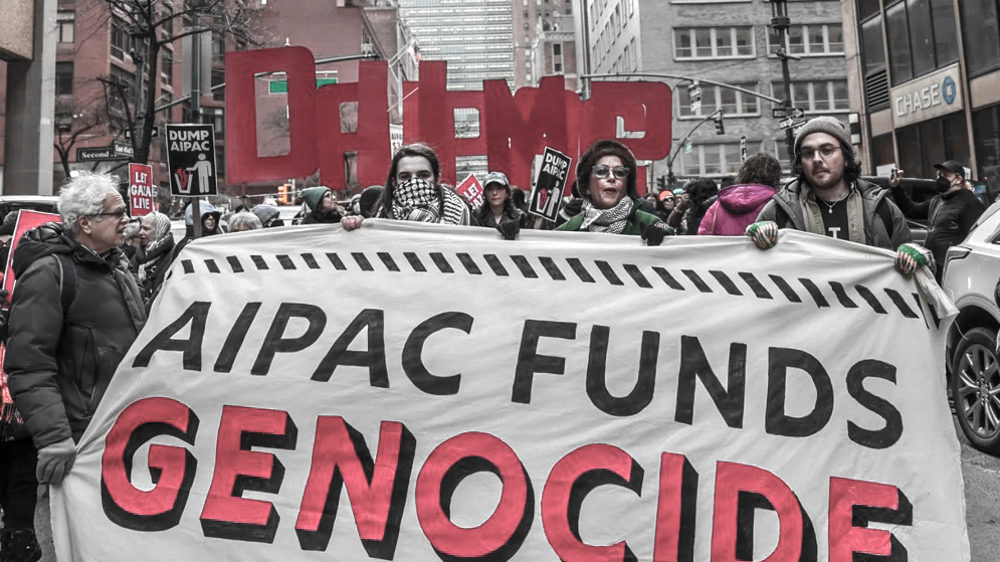
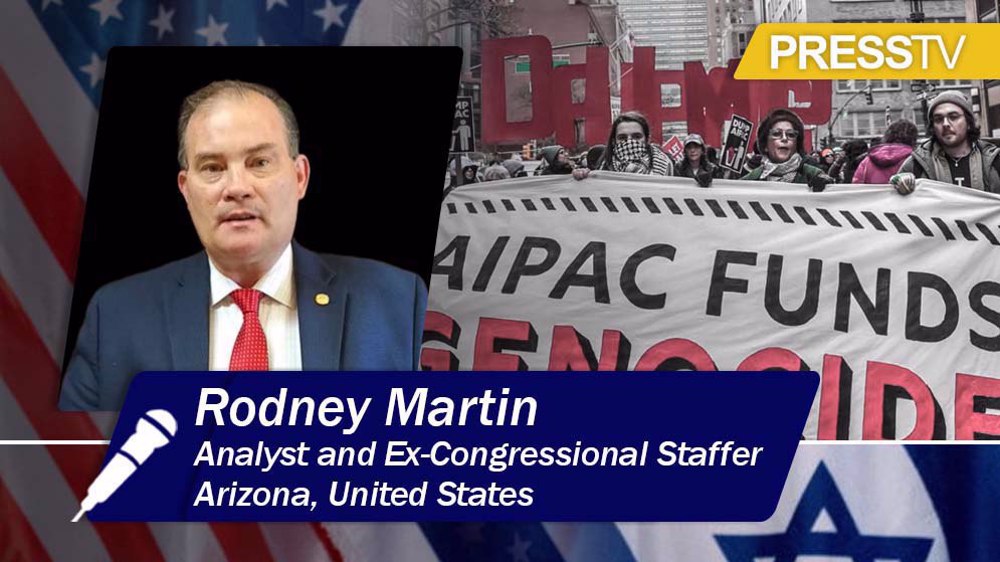
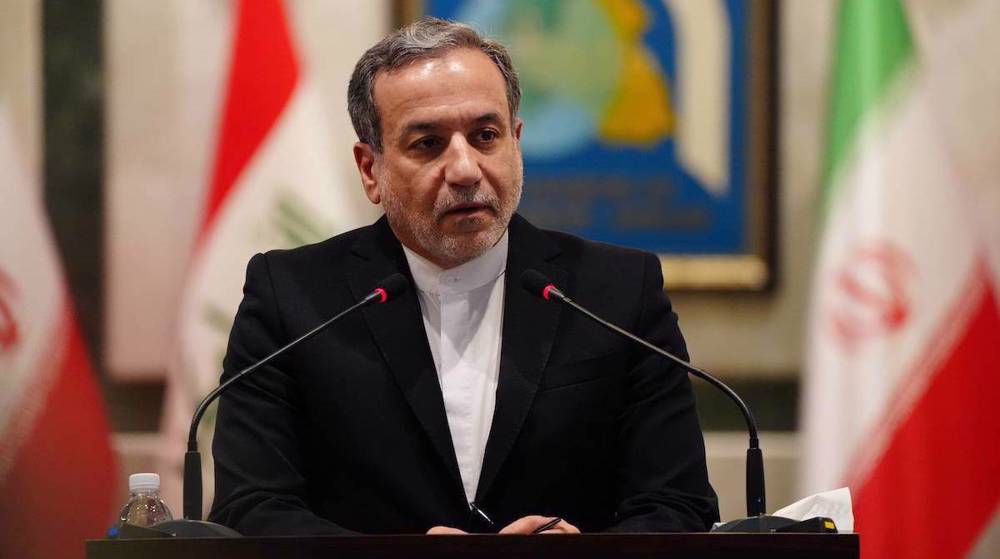
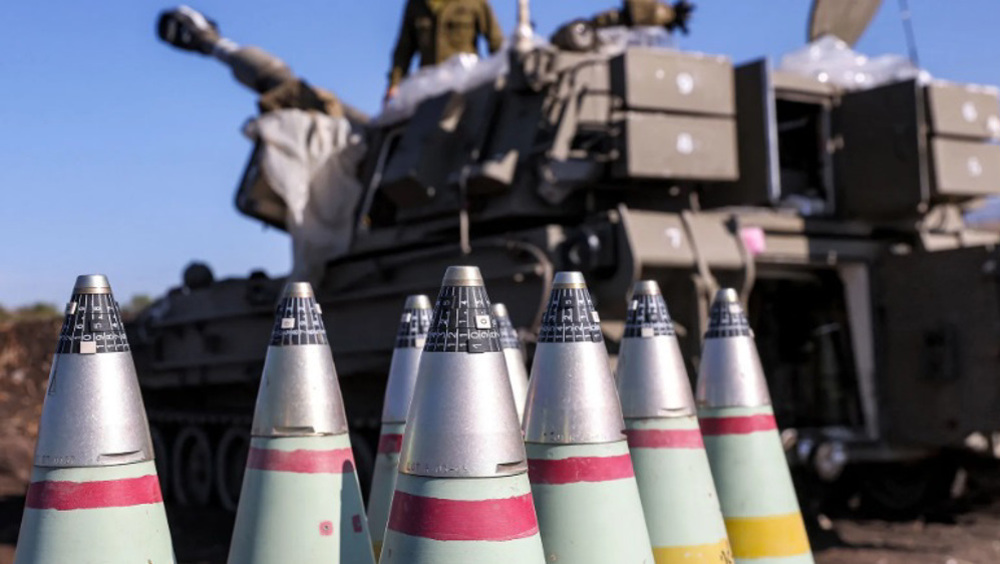
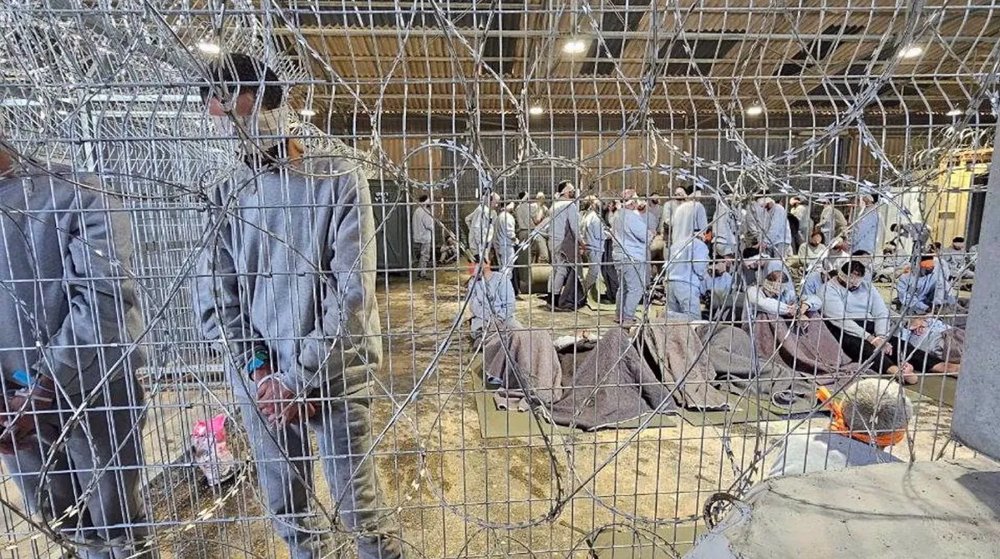



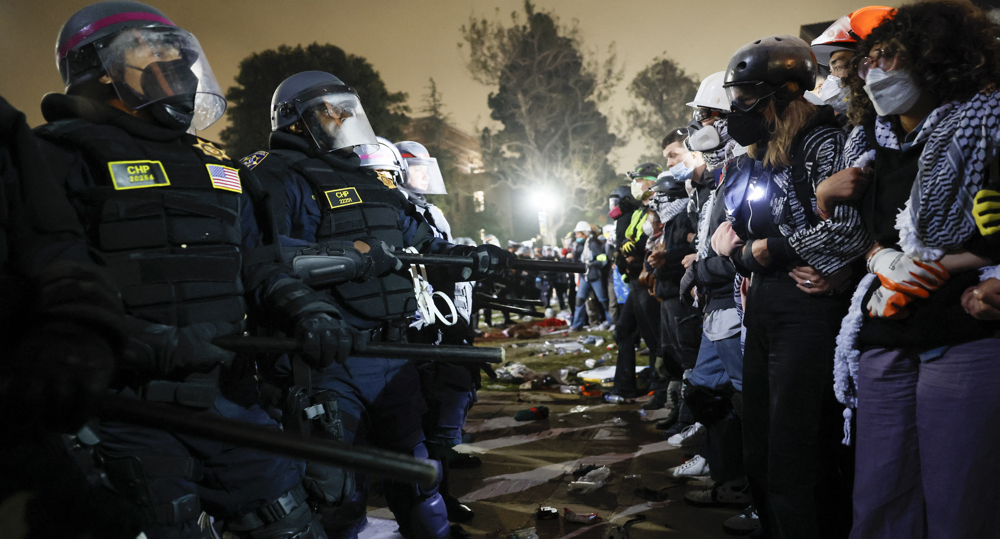
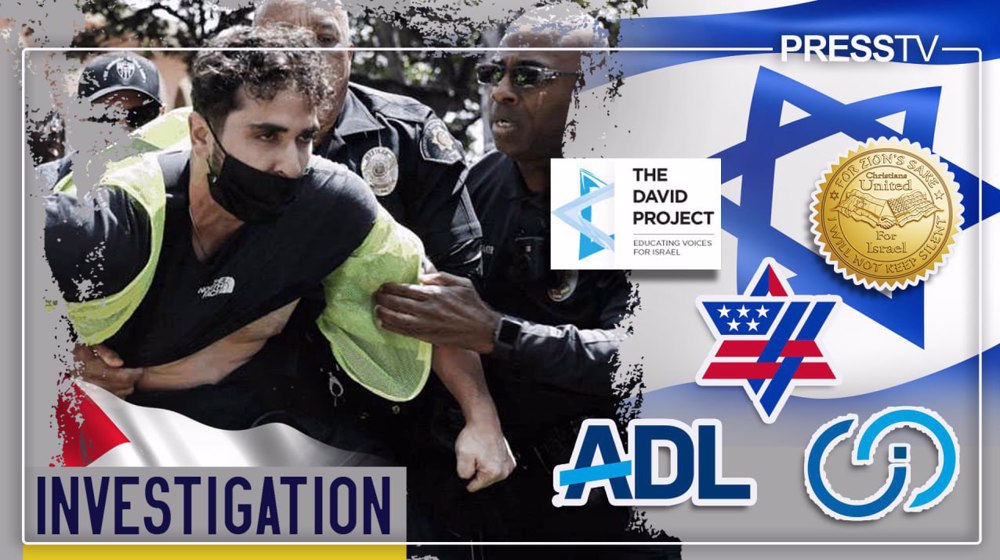
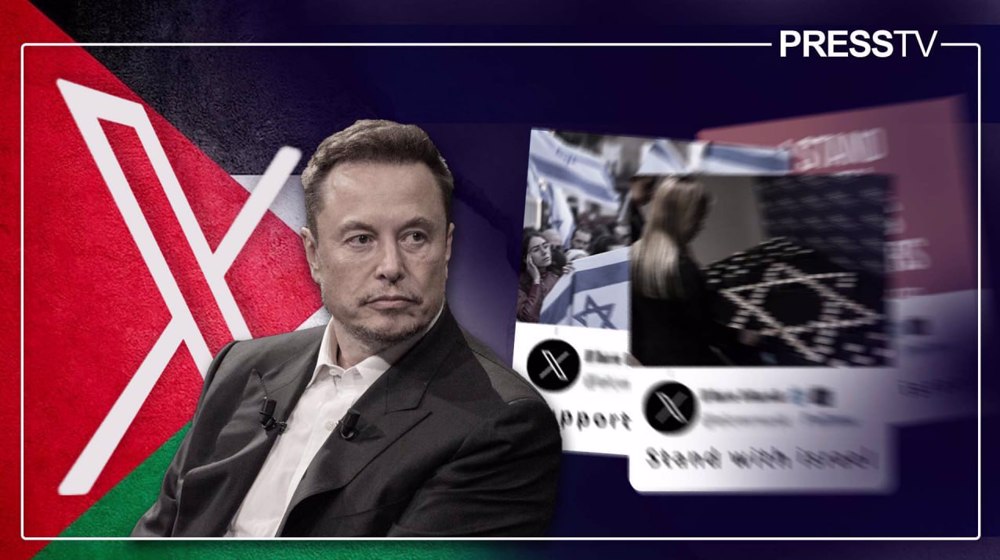

 This makes it easy to access the Press TV website
This makes it easy to access the Press TV website